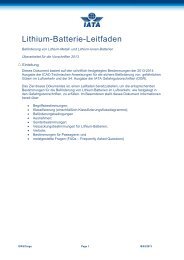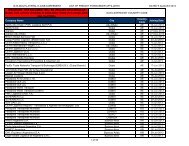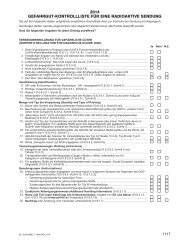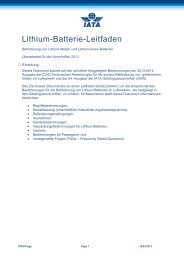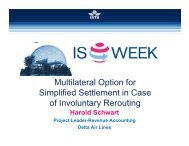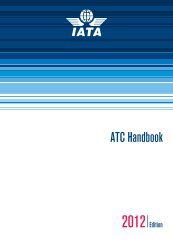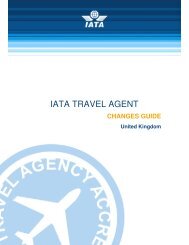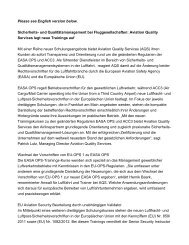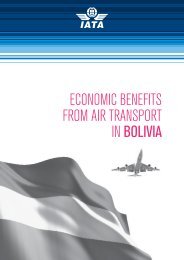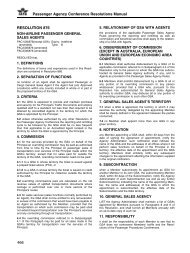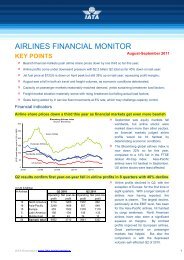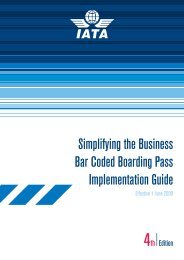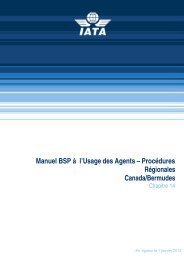Economic Regulation - IATA
Economic Regulation - IATA
Economic Regulation - IATA
You also want an ePaper? Increase the reach of your titles
YUMPU automatically turns print PDFs into web optimized ePapers that Google loves.
00 Foreword<br />
The case for independent<br />
economic regulation of<br />
airports and ANSPs is clear.<br />
It improves efficiency and<br />
productivity throughout the<br />
industry. It encourages cost<br />
effective new investment.<br />
It benefits all stakeholders,<br />
from the regulated airports<br />
and ANSPs to the customers<br />
and the wider economy.<br />
<strong>IATA</strong> and its member airlines welcome the trend towards<br />
greater commercialisation amongst our airport and air<br />
navigation service provider (ANSP) partners. The efficient<br />
delivery of air transport services would benefit from our<br />
suppliers being economically motivated, cost-efficient<br />
and customer-focused businesses.<br />
However, too often this is not the case.<br />
Airports and ANSPs are natural monopolies that are<br />
able to exert significant market power. In the absence of<br />
independent economic regulation this market power can<br />
be exploited. There are examples of good relationships<br />
between airlines and suppliers. But too often airlines<br />
are not treated as customers. In most cases, airlines<br />
are unable to take their business elsewhere, due to the<br />
costs and disruption involved. In such captive markets,<br />
the service provided by airports can be both expensive<br />
and not necessarily what is wanted by airlines.<br />
There is no “one-size fits all” regulatory framework. The<br />
key is to implement a regulatory framework appropriate<br />
to the nature of and objectives for the regulated company.<br />
Nevertheless, in each case the underlying principle should<br />
be for an independent and robust framework that allows<br />
a fair and constructive relationship between airlines and<br />
suppliers to develop and flourish.<br />
<strong>Regulation</strong> does not simply benefit airlines at the<br />
expense of airports or ANSPs. If implemented correctly,<br />
it can provide clear benefits for all parties. A credible and<br />
robust regulatory framework can reduce uncertainty –<br />
especially political uncertainty – boosting the credit<br />
strengths of regulated airports and ANSPs and lowering<br />
their financing costs.<br />
The global aviation industry, faced with the challenges<br />
of improving financial sustainability and addressing<br />
environmental concerns, must focus on using its existing<br />
resources more efficiently and delivering significant<br />
new capital investment cost-effectively. An effective<br />
regulatory framework, overseeing the key relationships<br />
between airlines and our industry partners, is an essential<br />
requirement for these challenges to be met successfully –<br />
to the mutual benefit of the industry, our customers and<br />
the wider global economy.<br />
Giovanni Bisignani - Director General & CEO, <strong>IATA</strong>



